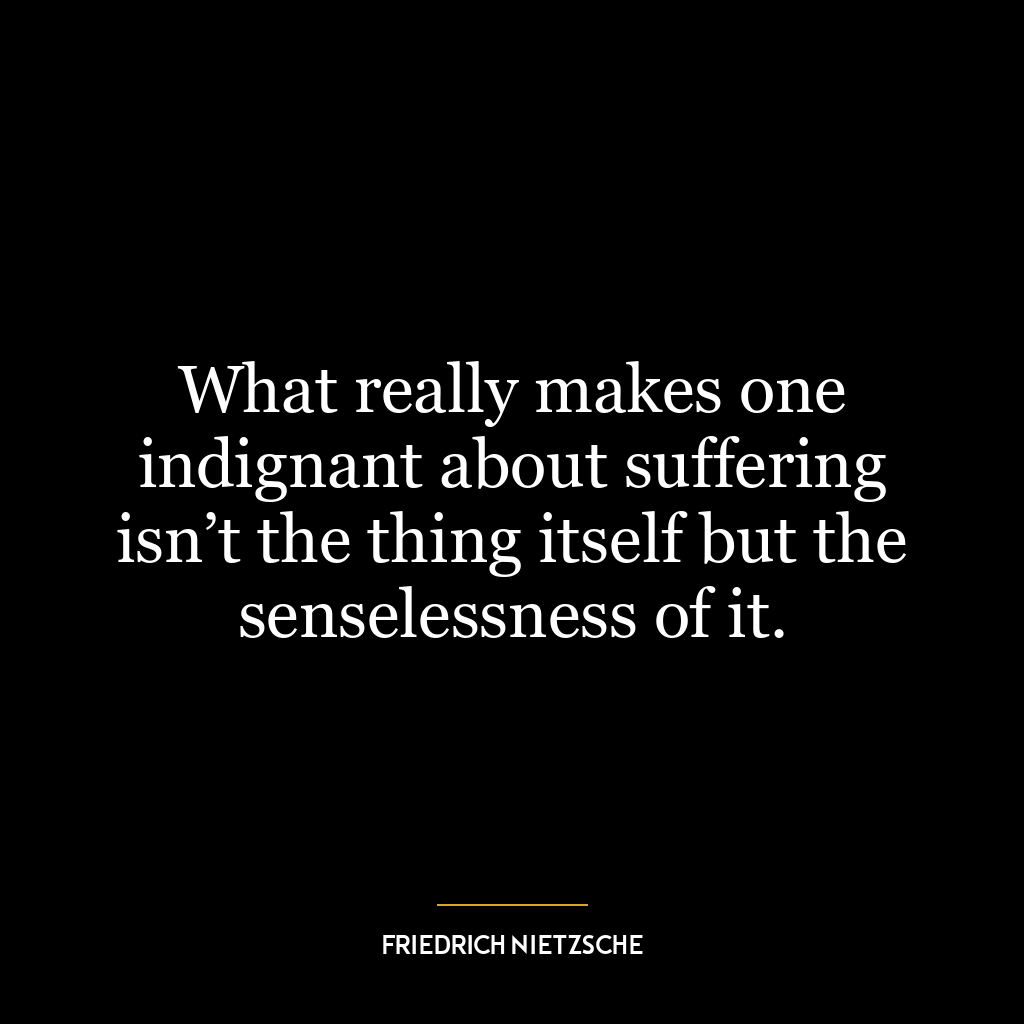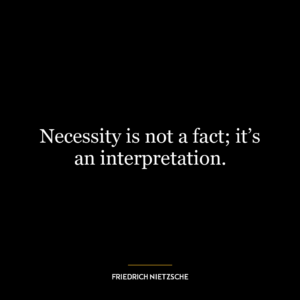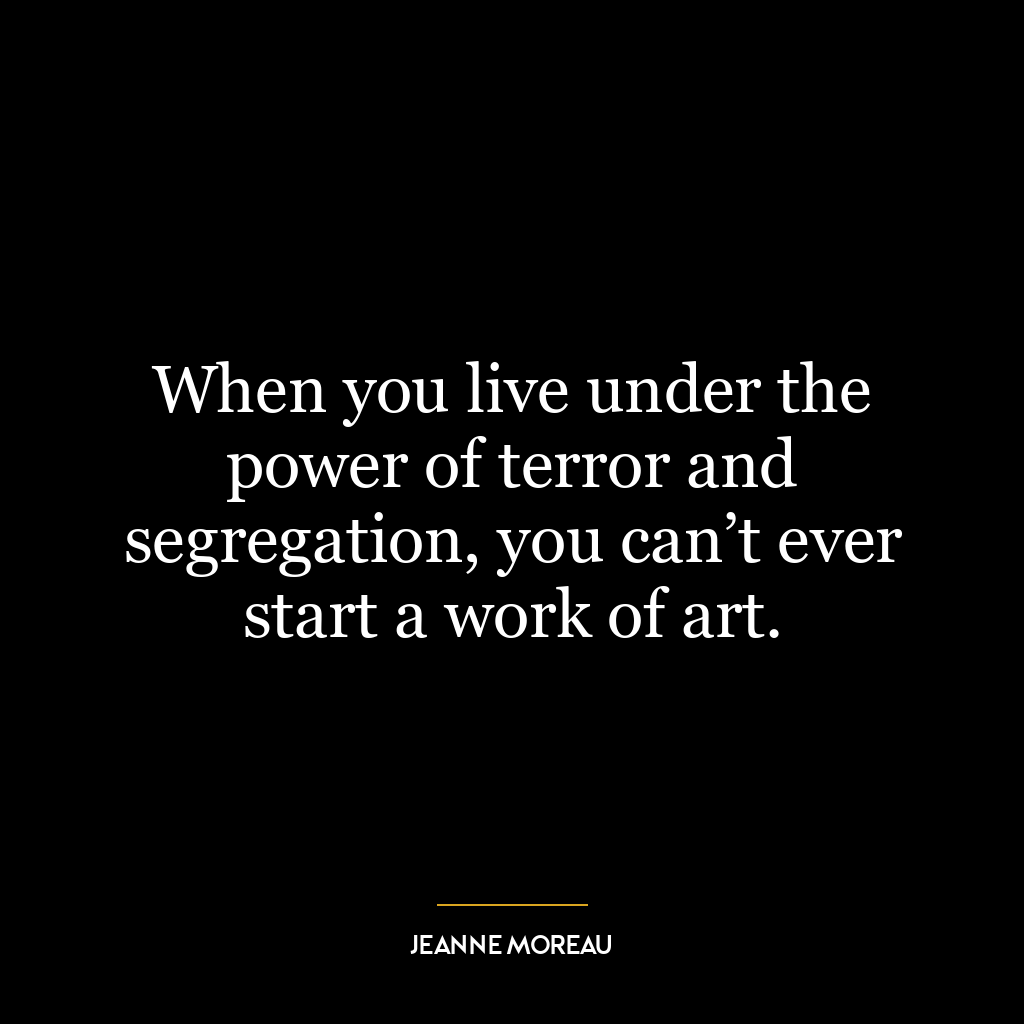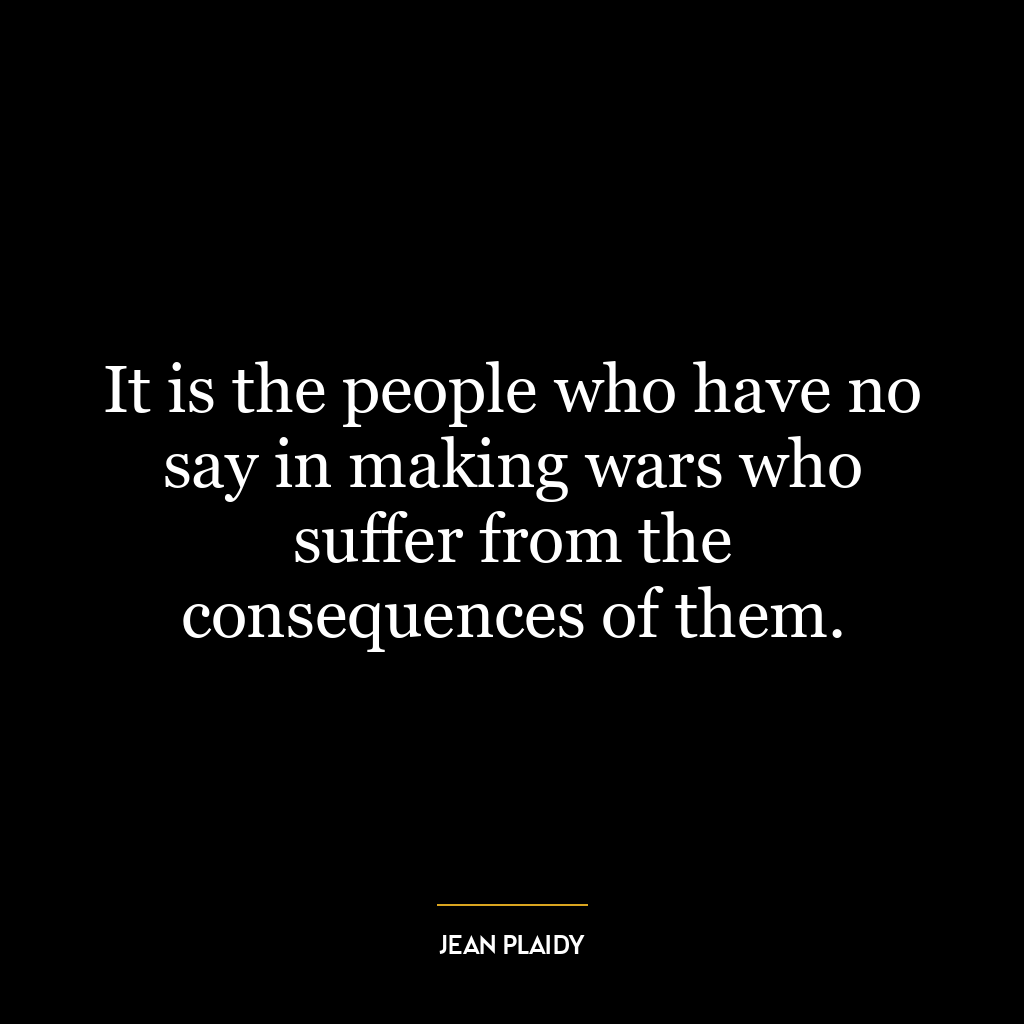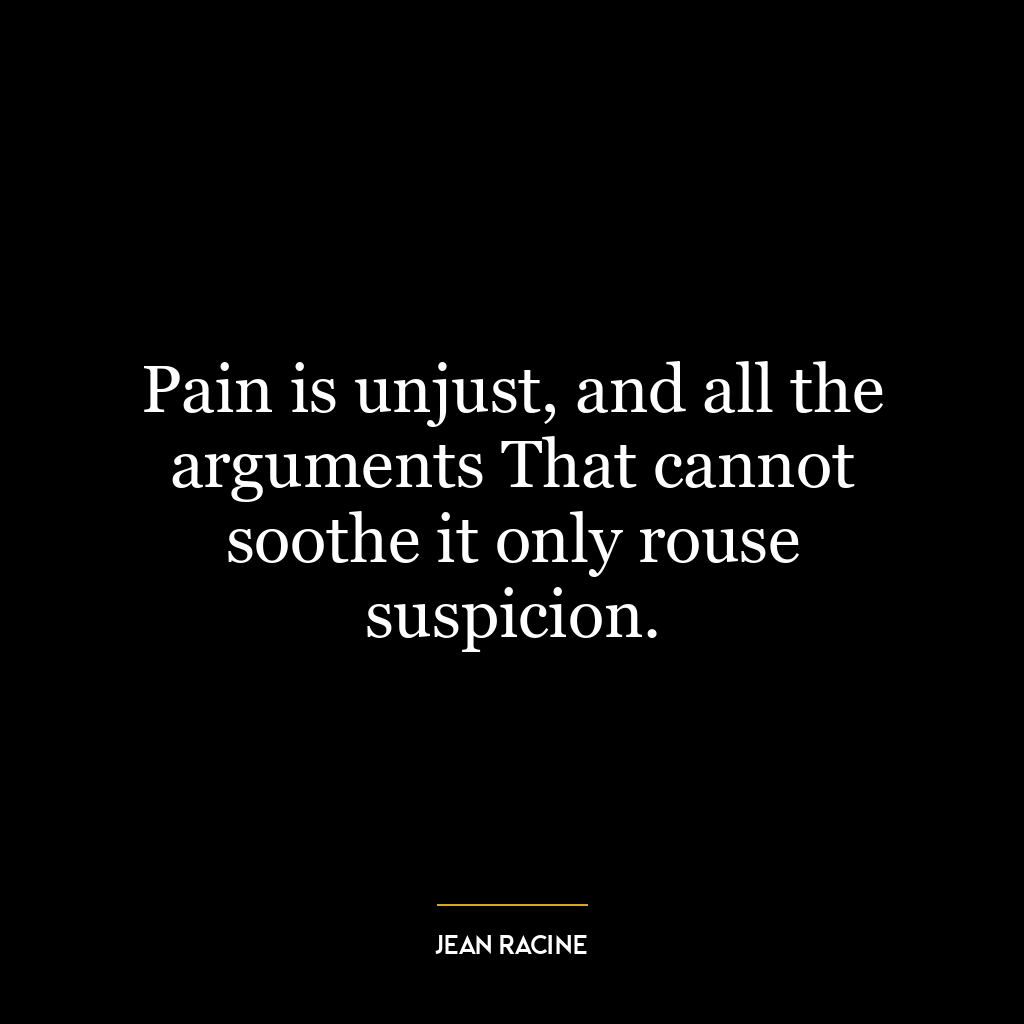What really makes one indignant about suffering isn’t the thing itself but the senselessness of it.
This quote suggests that what truly stirs feelings of anger or resentment towards suffering is not the suffering itself, but rather the perceived lack of purpose or meaning behind it. In other words, it’s easier to endure hardship if there’s a sense of purpose or a lesson to be learned from it. However, when suffering seems arbitrary or pointless, it becomes much more difficult to accept.
This idea can be applied in personal development through the practice of finding meaning in adversity. For instance, if someone loses their job, instead of dwelling on the negative aspects of the situation, they could try to see it as an opportunity for growth and change, perhaps as a chance to explore new career paths or develop new skills. By finding a sense of purpose in the hardship, they can alleviate some of the indignation or resentment associated with their suffering.
In the context of today’s world, this perspective can be particularly relevant in dealing with global challenges such as the COVID-19 pandemic. Many people have experienced suffering and loss due to the pandemic, and it can be difficult to find any sense or purpose in such a large-scale tragedy. However, some people have found meaning in the crisis by using it as an opportunity to reevaluate their priorities, strengthen their relationships, or contribute to their communities. By finding a sense of purpose in the midst of suffering, they can mitigate some of the indignation associated with the senselessness of the situation.

